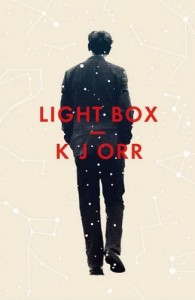Published by Daunt Books 18 February 2016
192pp, paperback, £9.99
Reviewed by Alison Burns
These are singular stories, tracking individual experience of alienation or flight across an unusually wide range of locations, from Argentina to Siberia.
Psychologically as well as geographically, Orr’s characters are out to find something, escape something, work something out. Each story, with its arresting descriptive precision (‘gunmetal’ parking bays, ‘the small golden explosions’ of champagne), presents an encounter, a compromise or a series of small shocks, in the course of which something internal shifts or settles.
In ‘Lake Shore Limited’, American rail passengers bump against each other and pull awkwardly away, as do railway carriages. In ‘Disappearances’, a retired cosmetic surgeon plays the subversive. In ‘By the Canal’ and ‘The Island’, violence rears up in holiday settings. In ‘Still Life’, a father copes with his daughter’s paralysis by reading to her about speed and motion. In ‘The Human Circadian Pacemaker’, the wife of an astronaut tries to imagine what he sees.
The final story, ‘The Ice Cream Song is Strange’, pulls all the themes together in a study of discomfort (which we have seen earlier in, for example, ‘The Shallows’, where a teenage girl on a crowded beach copes with her period). Here, a middle-aged New Yorker adrift in a Japanese hotel – in flight from relationships, going through the motions with the cocktails, the pool, ‘all the little bottles’ – asks himself, ‘What do you do when you stop?’
K.J. Orr is a distinctive new talent. She has been shortlisted for numerous awards, including the BBC National Short Story Award, the Bridport Prize and the KWS Hilary Mantel International Short Story Competition. Her work has been broadcast on BBC Radio 4 and published in magazines including the Dublin Review and the White Review.
Her publishers suggest that she will appeal to fans of Lorrie Moore, Raymond Carver, Lydia Davis, Lucia Berlin, Edith Pearlman, J.M. Coetzee and A.M. Homes. I would add to these Alice Munro.

